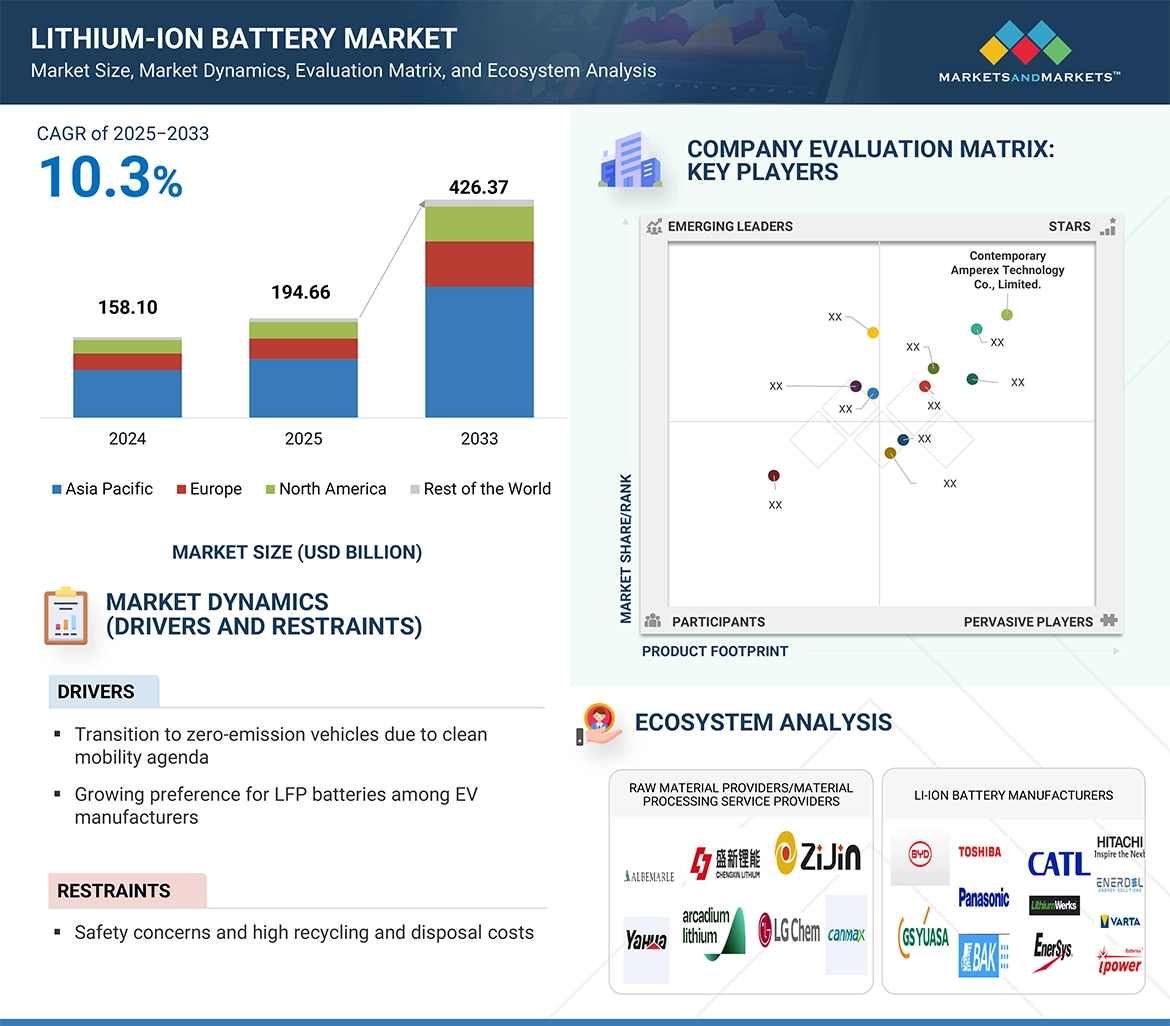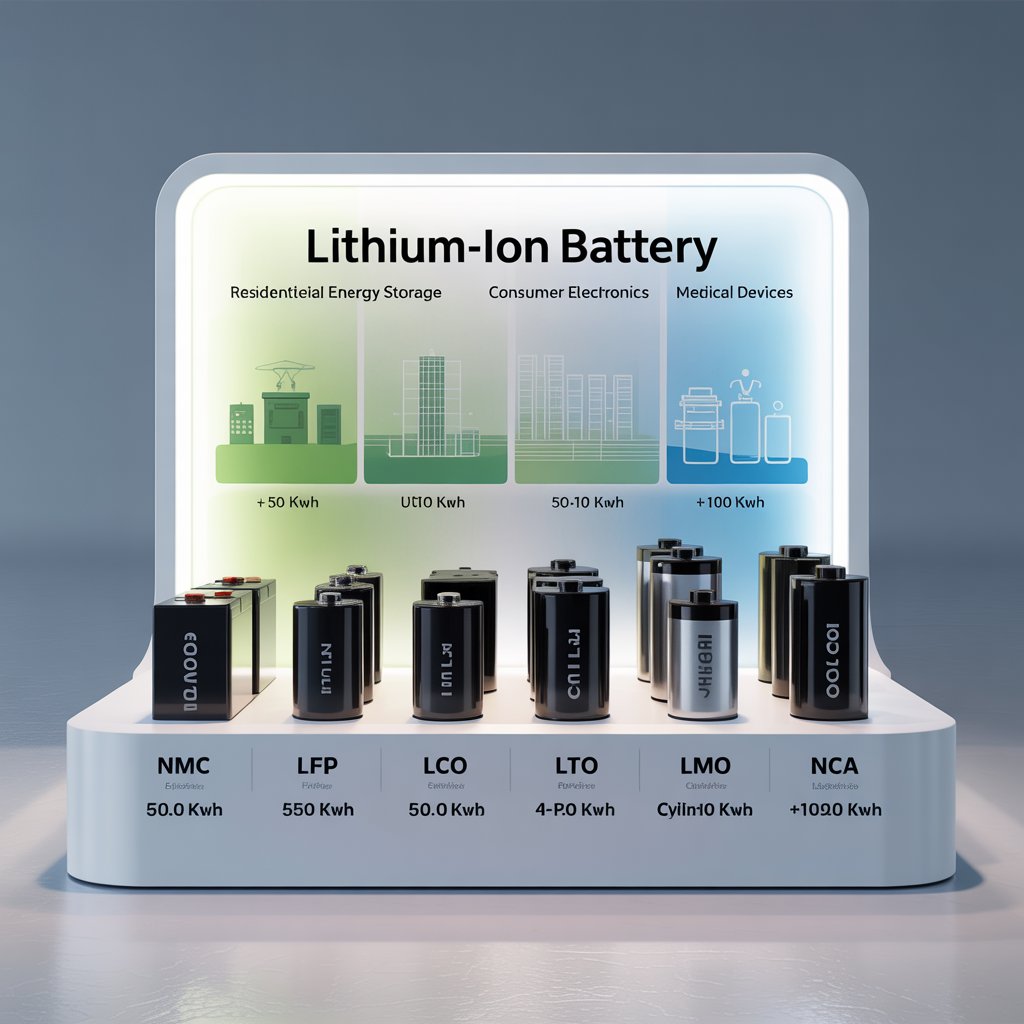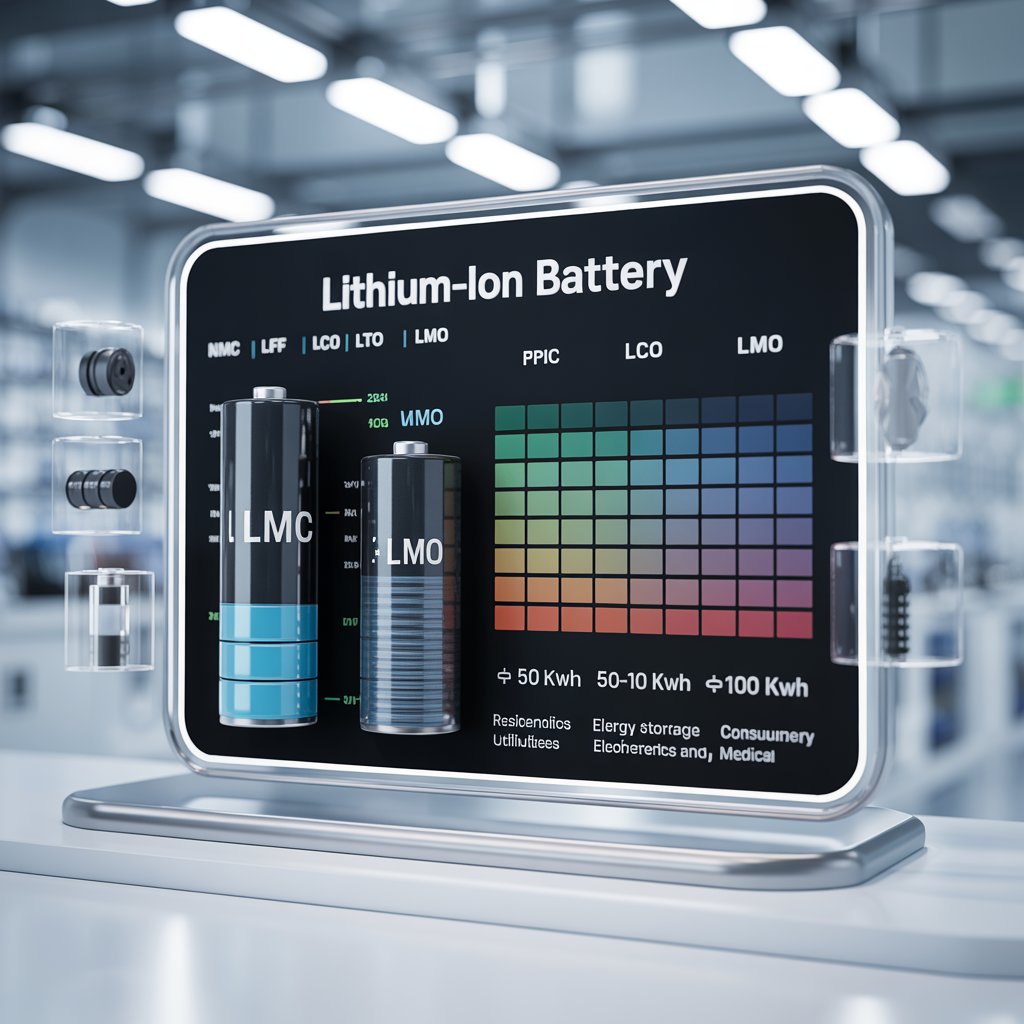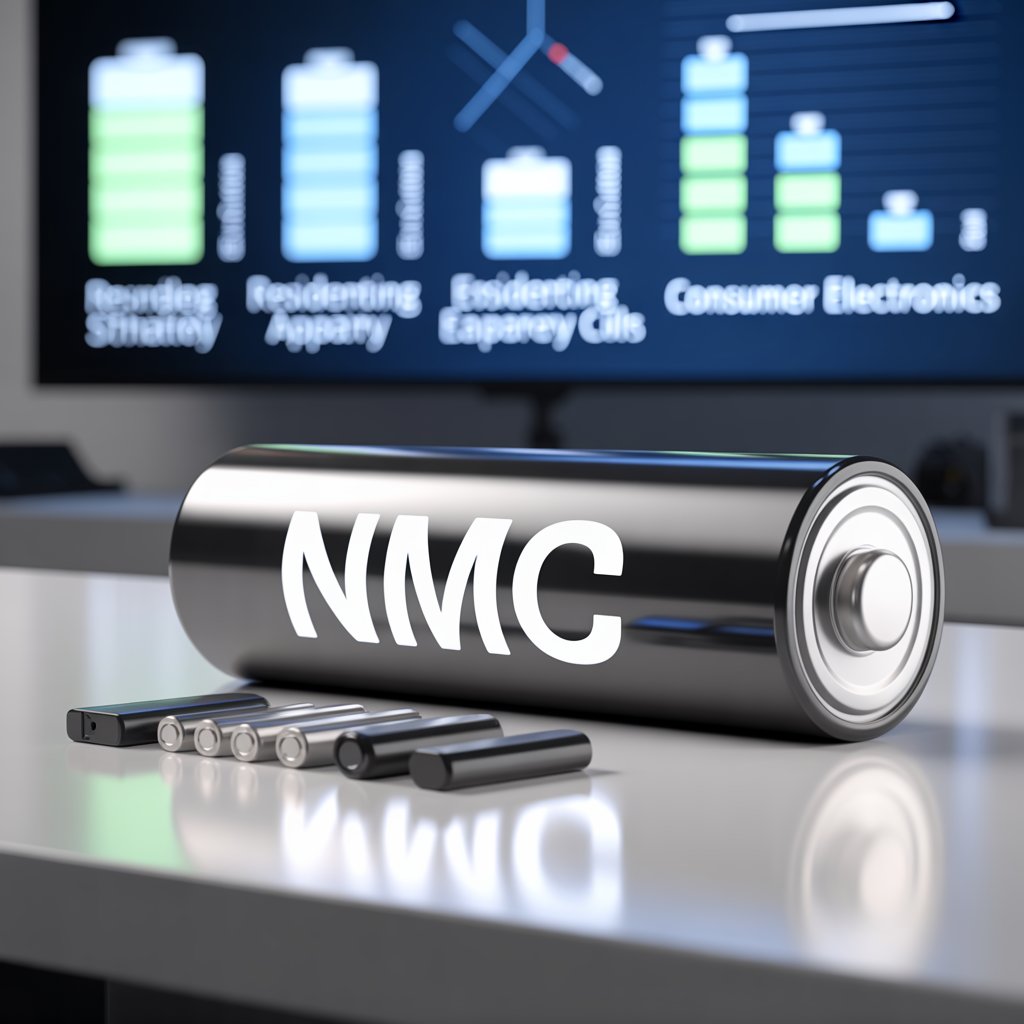The global pursuit of sustainability and decarbonization has reshaped the way the world generates, stores, and consumes energy. At the core of this green energy transformation lies the lithium-ion battery — a powerful innovation that has revolutionized modern energy systems. From electric vehicles to renewable energy storage, lithium-ion batteries have become indispensable in enabling cleaner, more efficient, and more sustainable energy solutions. Their versatility, high performance, and continual technological evolution make them the cornerstone of the green energy ecosystem.
Download Report Sample: https://www.marketsandmarkets.com/pdfdownloadNew.asp?id=49714593
The Foundation of Modern Energy Storage
Energy storage is a critical component of the clean energy revolution, bridging the gap between variable renewable generation and constant energy demand. Lithium-ion batteries have emerged as the most effective solution due to their superior energy density, long life cycle, and rapid charging capabilities. Unlike traditional energy storage systems, lithium-ion technology offers compactness, efficiency, and scalability — qualities that are essential for both grid-level storage and portable power applications. Their ability to store excess energy from renewable sources like solar and wind and release it when needed ensures the stability and reliability of modern power systems.
Powering the Electric Mobility Transition
The global shift from internal combustion engines to electric vehicles (EVs) is one of the most transformative trends of the 21st century, and lithium-ion batteries are at the heart of this evolution. They power everything from passenger cars and buses to two-wheelers and even commercial fleets. Advances in battery chemistry and design have significantly improved energy density, allowing EVs to travel longer distances on a single charge while reducing charging times. These advancements, coupled with declining battery costs, have made electric mobility increasingly accessible and competitive. As nations tighten emission regulations and incentivize clean transportation, the demand for high-performance lithium-ion batteries is expected to continue soaring, reinforcing their vital role in achieving global carbon reduction targets.
Inquiry Before Buying: https://www.marketsandmarkets.com/Enquiry_Before_BuyingNew.asp?id=49714593
Enabling Renewable Energy Integration
The rise of renewable energy sources such as wind and solar has introduced challenges related to intermittency and energy management. Lithium-ion batteries provide a practical solution to these issues by storing excess energy during peak generation and supplying it during periods of low production. This capability ensures a stable and consistent energy supply, enabling greater penetration of renewables into power grids. Grid-scale battery energy storage systems (BESS) using lithium-ion technology are being deployed worldwide to support grid stability, manage demand fluctuations, and enhance overall energy efficiency. These systems are transforming how electricity is distributed and consumed, paving the way for decentralized and resilient power networks.
Technological Advancements Driving Efficiency
Continuous innovation in lithium-ion technology has been a key factor behind its widespread adoption. Researchers and manufacturers are developing new materials and designs to increase energy capacity, enhance safety, and extend battery lifespan. Solid-state batteries, for example, promise higher energy density and improved thermal stability compared to traditional liquid-electrolyte batteries. Other innovations, such as lithium-iron-phosphate (LFP) and lithium-sulfur chemistries, are addressing concerns about material availability, cost, and sustainability. Meanwhile, advancements in battery management systems (BMS) and thermal regulation technologies are improving performance, reliability, and safety across applications. These technological breakthroughs are ensuring that lithium-ion batteries remain at the forefront of energy innovation.
View detailed Table of Content here – https://www.marketsandmarkets.com/Market-Reports/lithium-ion-battery-market-49714593.html
Economic Growth and Industrial Transformation
The rapid expansion of the lithium-ion battery industry is reshaping global economies and creating new industrial opportunities. Massive investments are being directed toward battery production facilities, known as gigafactories, across Asia, Europe, and North America. These facilities are driving down costs through economies of scale and supporting local supply chains. The industry is also fostering innovation in mining, recycling, and material processing, creating jobs and stimulating economic growth. As demand continues to surge, companies that can develop efficient, high-capacity, and sustainable battery solutions are poised to become key players in the future energy economy.
Sustainability and Circular Economy Approaches
Despite their many advantages, lithium-ion batteries pose challenges related to raw material sourcing, manufacturing emissions, and end-of-life management. Addressing these issues is crucial to ensuring that the technology remains truly sustainable. The industry is increasingly embracing circular economy principles, focusing on battery recycling and second-life applications. Recycling helps recover valuable materials such as lithium, nickel, and cobalt, reducing environmental impact and supply chain dependence. Additionally, used batteries from electric vehicles are being repurposed for stationary storage, extending their lifecycle and maximizing resource utilization. These initiatives not only reduce waste but also enhance the overall sustainability of the green energy ecosystem.
The Road Ahead for Lithium-ion Batteries
The future of lithium-ion batteries looks exceptionally promising as research continues to push the boundaries of performance and sustainability. Emerging technologies such as solid-state batteries, lithium-metal anodes, and advanced nanomaterials are expected to deliver higher capacity and faster charging while reducing environmental impact. Moreover, collaborations between governments, industries, and research institutions are accelerating innovation and supporting large-scale deployment of clean energy storage solutions. As global energy systems evolve, lithium-ion batteries will remain a foundational technology, enabling the transition toward a fully electrified and carbon-neutral world.




